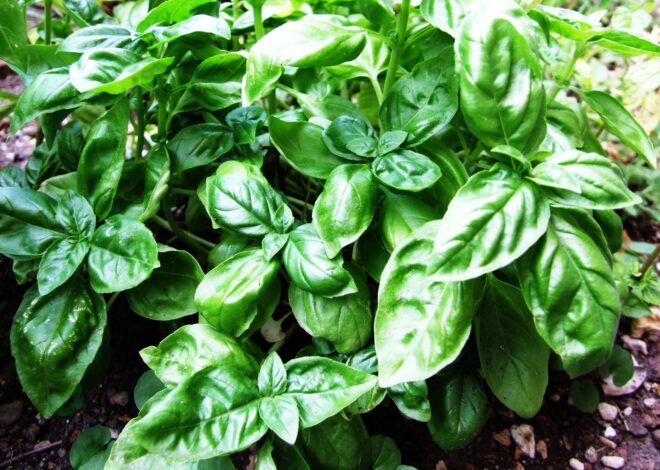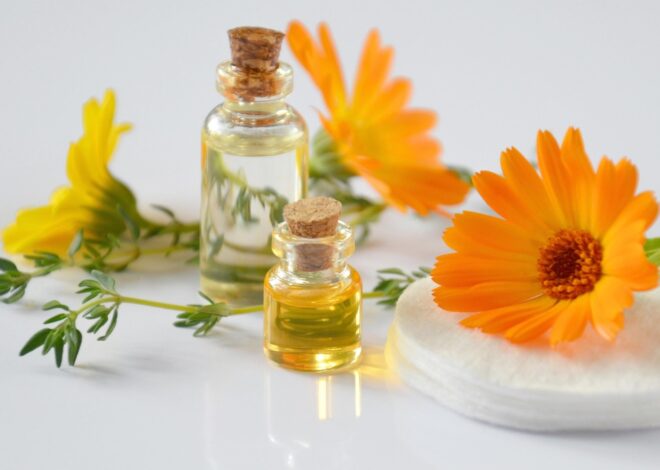
Medicinal Uses For Dandelion
Welcome to our step by step guide on medicinal uses for dandelion. Dandelions often evoke memories of childhood—picking the bright yellow flowers, blowing on their fluffy seed heads, and watching them drift away in the breeze. But these cheerful weeds are more than just a nostalgic symbol of carefree days.
They hold an impressive array of medicinal properties that have been used for centuries across various cultures. This unassuming plant has made its way into traditional remedies and modern health circles alike, showing promise in areas ranging from digestion to inflammation.
Curious about how dandelions can enhance your well-being? Let’s dive into the fascinating world of medicinal uses for dandelion and uncover why this common wildflower deserves a place in your herbal repertoire.
History of Medicinal Use
Dandelion, often dismissed as a pesky weed, boasts a rich history of medicinal use. Ancient cultures recognized its value long before modern science began to explore its benefits. In traditional Chinese medicine, dandelions were employed for their healing properties for centuries.
They treated ailments ranging from digestive issues to skin disorders. Similarly, Native American tribes utilized the entire plant—roots, leaves, and flowers—for various remedies. They believed it enhanced overall health and well-being. Europeans also embraced dandelion in folk medicine during the Middle Ages.
Herbalists used it to improve liver function and support digestion. This historical perspective highlights how deeply ingrained dandelion is in various cultural practices around the world as a natural remedy. Its resilience on both fields and gardens mirrors its enduring role in herbal traditions throughout history.
Nutritional Benefits of Dandelion
Dandelion is more than just a pesky weed. This vibrant plant is packed with nutrients that can boost your health. Rich in vitamins A, C, and K, dandelion leaves are a powerhouse for immune support and skin health. They contribute to overall wellness by helping maintain healthy vision.
These greens also offer essential minerals like potassium and calcium. These nutrients play vital roles in muscle function and bone strength, making dandelions an excellent addition to your diet. Moreover, dandelion roots provide dietary fiber which aids digestion. Fiber helps regulate bowel movements and supports gut health.
With its low calorie count yet high nutritional value, dandelion offers a guilt-free way to enhance meals while promoting well-being. Whether enjoyed fresh or brewed into tea, this remarkable plant holds many benefits waiting to be explored.
Common Medicinal Uses for Dandelion
Dandelion’s versatility in herbal medicine is truly remarkable. For centuries, it has been utilized for various ailments, making it a staple in many natural health practices. With such diverse medicinal properties, it’s no wonder dandelions have earned their place in traditional remedies worldwide.
– Treating Digestive Issues with Dandelion
Dandelion, often overlooked as a simple weed, has remarkable properties that can aid digestion. Its leaves and roots have been traditionally used to stimulate appetite and alleviate digestive troubles.
Rich in dietary fiber, dandelion helps promote healthy bowel movements. This natural laxative effect can ease constipation and enhance overall gut health.
Additionally, dandelion stimulates bile production from the liver. Bile is essential for breaking down fats in our diet, making it easier for your body to absorb nutrients efficiently.
The bitter compounds found in dandelion may also support gastric function by increasing stomach acid production. This improves food breakdown and nutrient absorption.
Incorporating dandelion into meals or teas can offer a gentle approach to tackle common digestive complaints while enhancing overall well-being. Just a small addition to your routine might make a significant difference in how you feel after eating.
– Using Dandelion as a Natural Diuretic and Detoxifier
Dandelion is gaining popularity as a natural diuretic. This means it helps promote the production of urine. Increased urination can assist in flushing out excess fluids and toxins from the body.
Many people turn to dandelion when looking for a gentle detoxifier. The leaves, often brewed as tea or used in salads, contain compounds that support kidney function. They encourage better waste elimination without harsh side effects.
Moreover, dandelions are rich in potassium. This balances electrolytes even while promoting fluid loss, making it a safer choice compared to synthetic diuretics.
Incorporating this vibrant plant into your routine might not only enhance hydration but also boost overall health. Whether enjoyed as an infusion or added fresh to meals, dandelion offers refreshing benefits worth exploring.
– Potential Anti-Inflammatory Effects of Dandelion
Dandelion has garnered attention for its potential anti-inflammatory properties. Research suggests that compounds found in dandelion may help reduce inflammation in the body.
One key component is taraxasterol, a triterpene that exhibits significant anti-inflammatory effects. This compound could play a role in managing conditions linked to chronic inflammation, such as arthritis and inflammatory bowel disease.
Furthermore, dandelion’s rich content of antioxidants contributes to its ability to combat oxidative stress. By neutralizing free radicals, these antioxidants can further reduce the overall inflammatory response.
Incorporating dandelion into your diet might provide support for maintaining balance within your immune system. Whether consumed as tea or added to salads, this humble plant packs a punch against inflammation.
– Potential Antioxidant Effects of Dandelion
Dandelion is gaining attention for its potential antioxidant properties. Antioxidants play a crucial role in neutralizing free radicals, which can cause cellular damage and contribute to various diseases.
Research suggests that dandelion extracts may help combat oxidative stress. The plant contains compounds like flavonoids and polyphenols known for their protective effects on cells.
These natural substances work by scavenging harmful molecules in the body, potentially reducing inflammation and promoting overall health. Some studies even indicate that dandelion might enhance the body’s defense against chronic conditions linked to oxidative damage.
Incorporating dandelion into your diet not only opens doors to unique flavors but also offers an easy way to boost your antioxidant intake. Whether you choose fresh leaves, roots, or tea, you’re tapping into nature’s pharmacy with every bite or sip.
Research and Evidence Supporting Medicinal Uses
Numerous studies highlight the potential health benefits of dandelion. Research indicates that its roots and leaves possess bioactive compounds that contribute to various medicinal properties. One study showed that dandelion extract might effectively support liver function.
Researchers found it could help detoxify harmful substances, suggesting a role in enhancing overall wellness. Another area of interest is its impact on digestive health. Some scientific investigations reveal that dandelion may stimulate appetite and improve digestion by promoting bile production.
Additionally, evidence points toward anti-inflammatory effects linked to this humble plant. Certain animal studies have reported reduced inflammation markers after administering dandelion extracts.
Preliminary findings suggest antioxidant benefits as well, which could protect cells from damage caused by free radicals. More extensive research is needed for conclusive results but the existing data is promising and encourages further exploration into these medicinal uses for dandelion.
How to Incorporate Dandelion into Your Diet
Incorporating dandelion into your diet is both easy and rewarding. Start with fresh leaves; they can add a delightful bitterness to salads. Simply rinse them thoroughly and toss them in with your favorite greens. For a warm option, consider brewing dandelion root tea.
Roasted roots offer an earthy flavor that’s perfect for sipping on chilly days. Dandelion flowers are another exciting addition; try using them in fritters or as natural food coloring in desserts. Their vibrant hue brings dishes to life.
If you’re feeling adventurous, blend dandelion greens into smoothies for added nutrients without overwhelming the taste. This way, you can enjoy their health benefits while masking their unique flavor. Don’t forget about supplements! Dandelion extract capsules provide concentrated benefits if you’re looking for convenience in your routine.
Dandelion Recipes for Medicinal Purposes
Dandelion can be a delightful addition to your kitchen, providing both flavor and health benefits. One simple way to enjoy this herb is by making dandelion tea. Just steep fresh or dried leaves in hot water for 5-10 minutes. Add honey or lemon for extra taste.
For a nutritious salad, toss young dandelion greens with olive oil, vinegar, and your favorite toppings like nuts and cheese. The bitterness of the greens pairs well with sweet ingredients. Another option is creating a dandelion pesto.
Blend the greens with garlic, nuts, Parmesan cheese, and olive oil until smooth. This vibrant spread works great on sandwiches or pasta. If you’re feeling adventurous, try making dandelion wine using petals from fresh flowers mixed with sugar and yeast. It’s an age-old recipe that yields a unique drink packed with potential health perks!
Precautions and Side Effects
While dandelion is generally safe for most people, there are some precautions to consider. Individuals with allergies to related plants, such as ragweed, may experience reactions after consuming dandelion. Those with gallbladder issues should consult a healthcare provider before using it. Dandelion can stimulate bile production and might exacerbate symptoms in sensitive individuals.
People taking certain medications, especially blood thinners or diuretics, must be cautious. Dandelion has the potential to interact with these drugs and alter their effectiveness. Pregnant or nursing women should also approach dandelion cautiously due to limited research on its effects during pregnancy and breastfeeding.
Always start with small amounts when adding dandelion to your diet. This will help you monitor any adverse reactions your body may have. If in doubt, seeking professional advice is always wise before incorporating new herbal remedies into your routine.
Conclusion: The Healing Properties of Dandelion
Dandelions are often dismissed as mere weeds, but their healing properties deserve recognition. From digestive support to anti-inflammatory benefits, this humble plant packs a punch in the medicinal realm. Rich in nutrients and antioxidants, dandelion can be a valuable addition to your wellness routine.
Incorporating dandelion into your diet is simple and versatile. Whether you choose to enjoy it as tea, salad greens, or even in smoothies, its health benefits can enhance your overall well-being. However, it’s essential to approach any natural remedy with caution and consult healthcare professionals if needed.
Embracing the potential of dandelion not only reconnects us with traditional herbal practices but also encourages a more holistic approach to health. This common flowering plant reminds us that nature often provides powerful solutions for our everyday ailments. So why not explore the many ways dandelion can contribute positively to your health?






